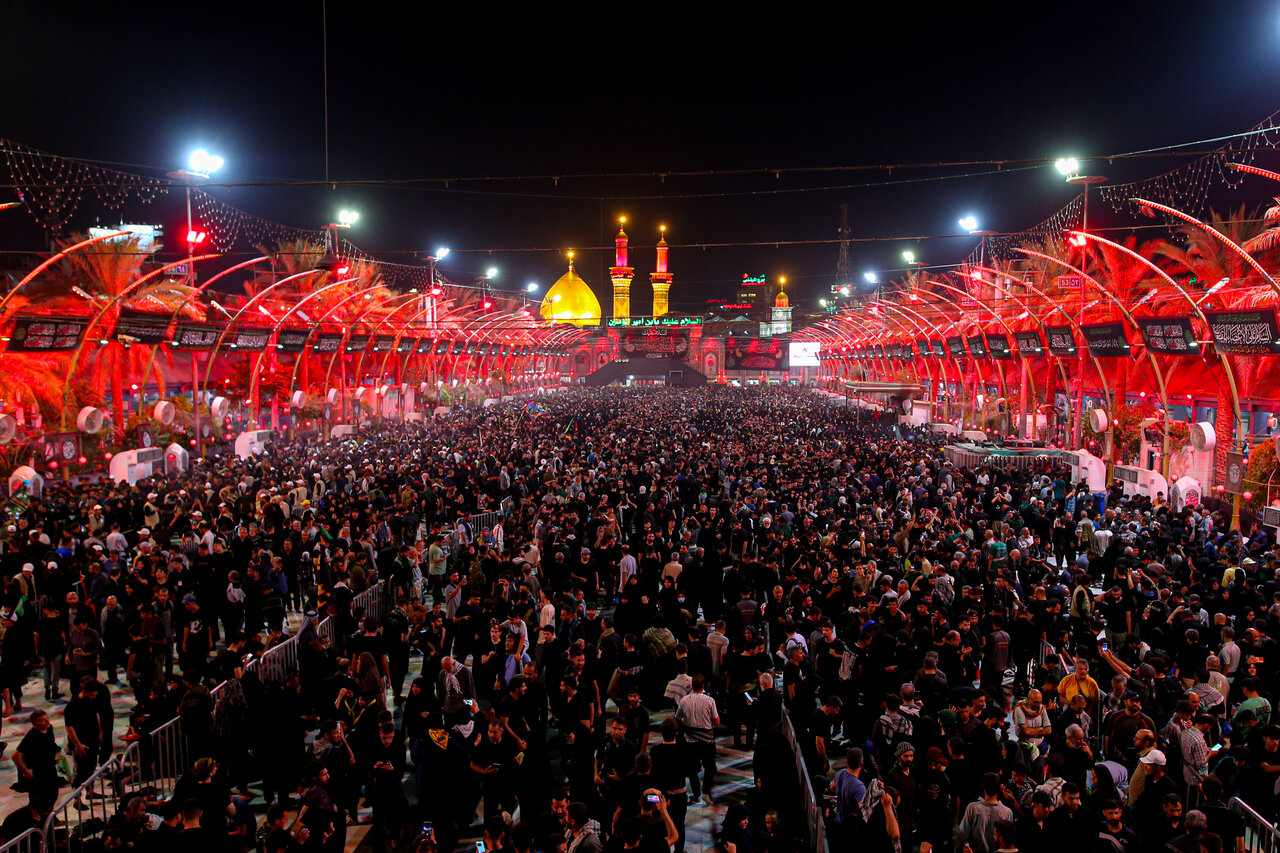Arbaeen: A record-breaking march of devotion and unity

TEHRAN — In a majestic and awe-inspiring display of faith, unity, and devotion, millions of pilgrims from every corner of the globe gathered in the holy Iraqi city of Karbala to commemorate Arbaeen — the fortieth day after the martyrdom anniversary of Imam Hussein (AS), the third Shia Imam and the revered grandson of Prophet Muhammad (PBUH).
The scale of this annual pilgrimage is unmatched, with participants from diverse nationalities, cultures, and languages, walk side by side with a single purpose: to honor the sacrifice of Imam Hussein, who in 680 AD stood against tyranny and oppression in the Battle of Karbala. His refusal to pledge allegiance to the unjust Umayyad ruler Yazid cost him and his 72 loyal companions their lives, but it preserved the principles of justice, dignity, and truth for generations to come.
For days and weeks leading up to Arbaeen, the roads to Karbala transform into rivers of humanity, stretching from Iraq’s borders and beyond. Pilgrims travel on foot from cities inside Iraq, as well as from neighboring countries including Iran, Lebanon, Pakistan and Afghanistan. Some journey from even farther afield — from Europe, Africa, the Americas, and Australia — driven by love for Imam Hussein’s message.
The sight is breathtaking: endless lines of men, women, and children of all ages walking shoulder to shoulder, their steps in unison as they chant elegies, recite prayers, and carry flags bearing the name of Hussein. Despite the vast differences in nationality, culture, and language, the pilgrims are united in their devotion and in their rejection of injustice.
One of the most striking features of Arbaeen is the generosity and hospitality that greet pilgrims along the way. Thousands of moukebs — volunteer-run service stations — line the routes leading to Karbala. Families, tribes, and charitable groups set up tents and kitchens, offering everything from fresh bread and hot meals to cold water, fruit, and tea. Others provide medical care, rest areas, blankets, massages for tired feet, and even shoe repair.
For many of these volunteers, serving pilgrims is a deeply spiritual act — a way to emulate the compassion and selflessness of Imam Hussein himself. Some save money all year to fund their moukeb, seeing it as the highest form of charity.
According to official figures, over five million pilgrims crossed into Iraq from Iran in the past weeks alone. In total, tens of millions are estimated to have participated worldwide, making Arbaeen the largest peaceful gathering on Earth.
For those unable to travel to Karbala, symbolic Arbaeen marches take place across hundreds of cities worldwide. In Iran, the campaign “Those Left Behind from Arbaeen” organized massive processions in every province. In Tehran, tens of thousands walked the 13-kilometer route from Imam Hussein Square (downtown Tehran) to the shrine of Shah Abdol-Azim Hasani in Rey (south Tehran), served by over 2,000 moukebs along the way. Similar events were held in Lebanon, Pakistan, India, Tanzania, the United Kingdom, and North America, allowing participants to connect spiritually to Karbala’s message.
While Arba’een is deeply rooted in Shia tradition, the pilgrimage is far from exclusive. Sunnis, Christians, Yazidis, and people of other faiths are often seen walking alongside Shia Muslims, united by the universal values Imam Hussein stood for. His call for justice, moral integrity, and defense of the oppressed resonates across religious and cultural boundaries.
This unity is not symbolic alone; it is lively. Pilgrims share food, shelter, and stories along the journey. Barriers of nationality, social class, and language dissolve in the shared rhythm of footsteps toward the shrine of Hussein.
For many pilgrims, the journey to Karbala is a personal turning point. The physical hardships — long distances, hot days, and crowded roads — are embraced as opportunities for spiritual cleansing and self-discipline. Pilgrims describe Arba’een as a renewal of their moral compass, a reaffirmation of their commitment to justice and compassion in daily life.
The emotional impact is profound. As pilgrims enter Karbala and catch sight of the golden dome of Imam Hussein’s shrine, many are moved to tears. The air is filled with heartfelt cries of “Labayka Ya Hussein” — “At your service, O Hussein” — a declaration of loyalty that has echoed for fourteen centuries.
Arbaeen is not merely a remembrance of a historical event; it is a living, breathing movement. It stands as a reminder that the struggle for justice is a timeless duty, and that unity in the face of oppression can be a powerful force for change.
From the narrow alleyways of Karbala to the farthest reaches of the globe, Arbaeen continues to inspire. It is a testament to the enduring power of faith and the extraordinary unity that can arise when millions march together for a cause that transcends time, borders, and differences.
Leave a Comment